Writing worksheets activities for Ages 5-9
8 filtered results
-
From - To
Discover our engaging writing worksheets for children aged 5-9, designed to enhance their literacy skills in a fun and interactive way. Our carefully curated activities promote creative expression, vocabulary development, and sentence construction through various exercises. Each worksheet encourages young learners to articulate their thoughts, explore different writing styles, and strengthen their fine motor skills. With colorful designs and age-appropriate themes, these worksheets captivate children's interest, fostering a love for writing. Ideal for both home and classroom use, our resources support early writers on their journey to becoming confident communicators. Explore our collection and inspire your child's writing journey today!
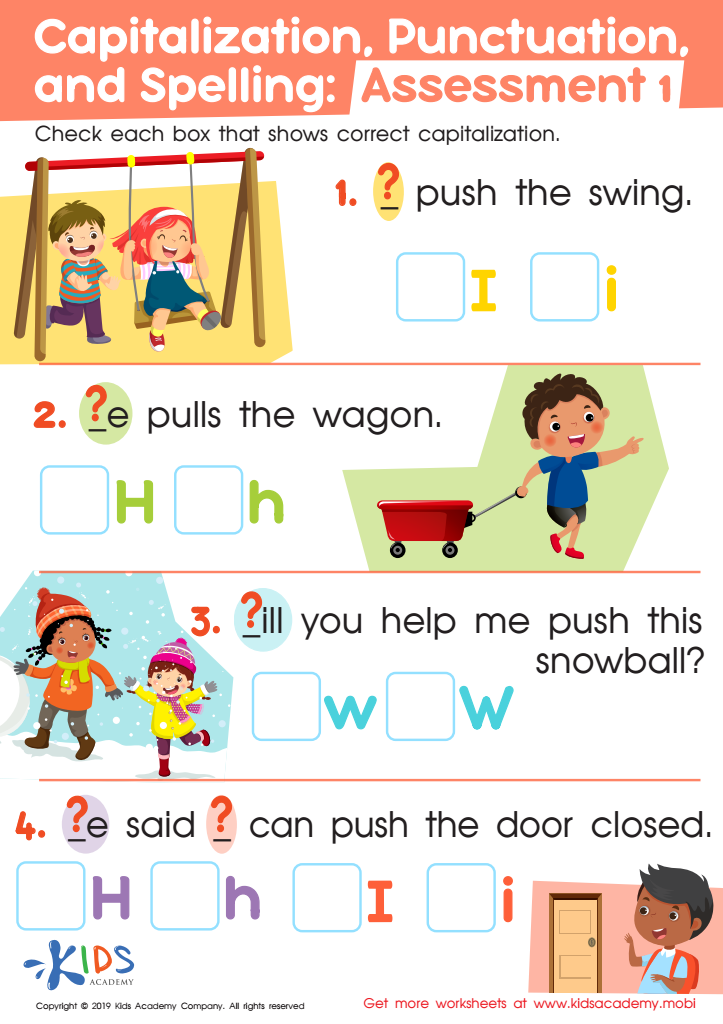

Capitalization. Punctuation. Spelling: Assessment 1 Worksheet
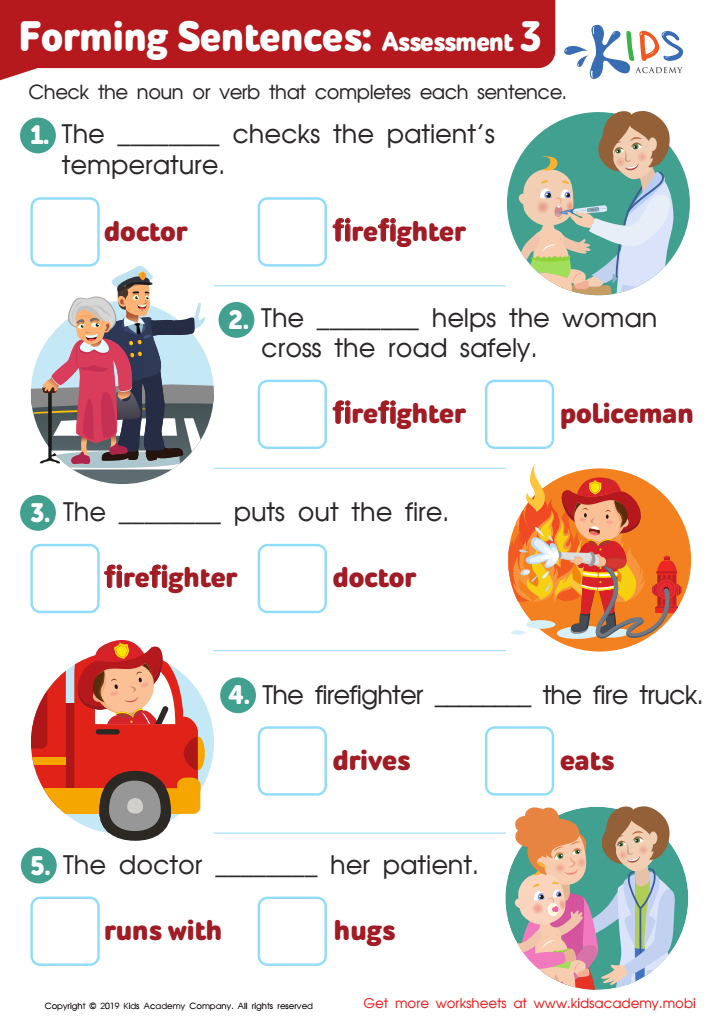

Forming Sentences: Assessment 3 Worksheet
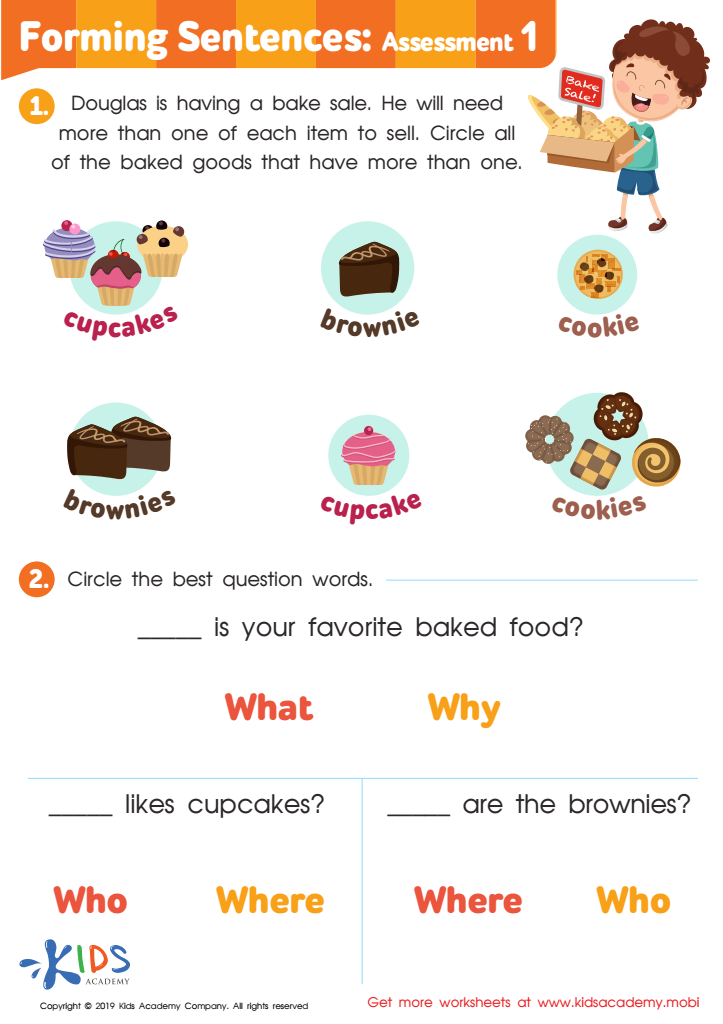

Forming Sentences: Assessment 1 Worksheet
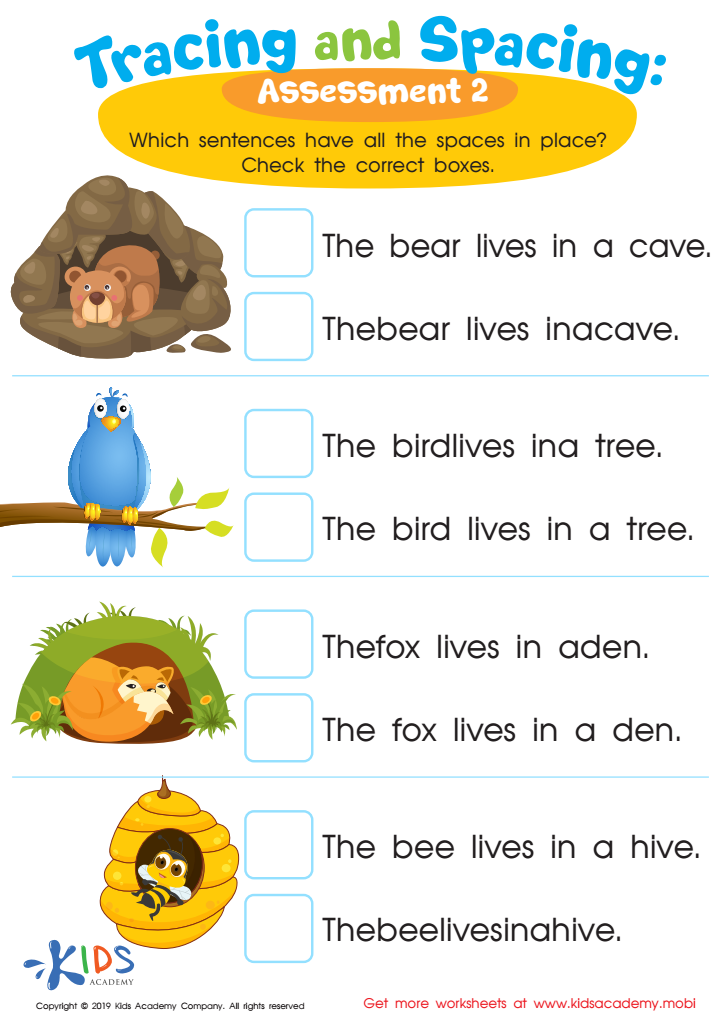

Tracing and Spacing: Assessment 2 Worksheet
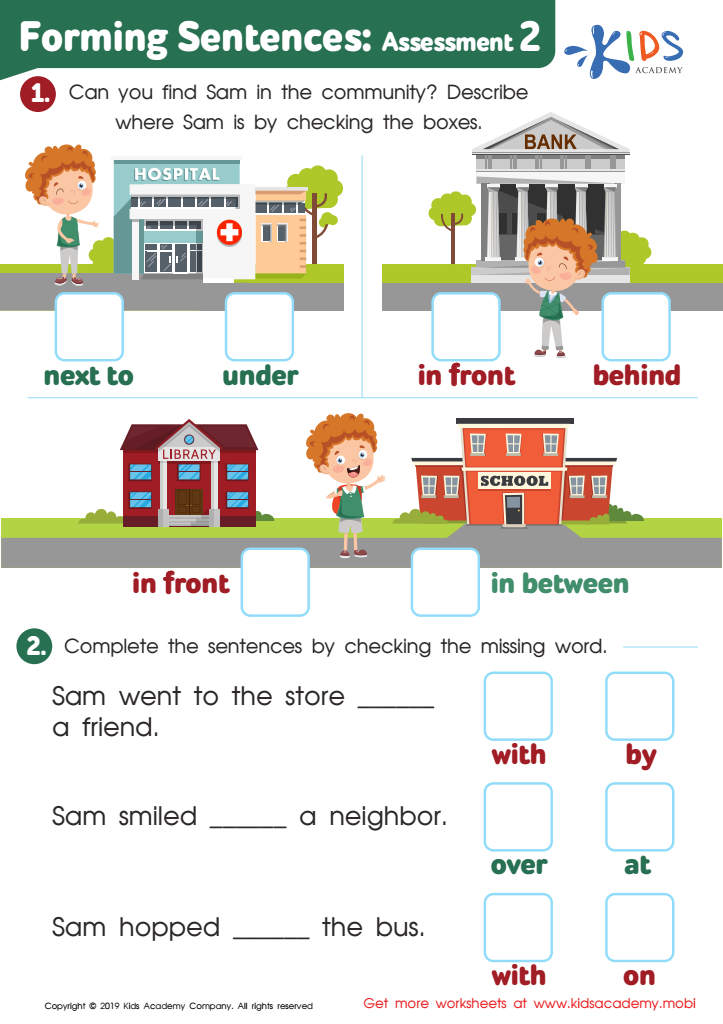

Forming Sentences: Assessment 2 Worksheet
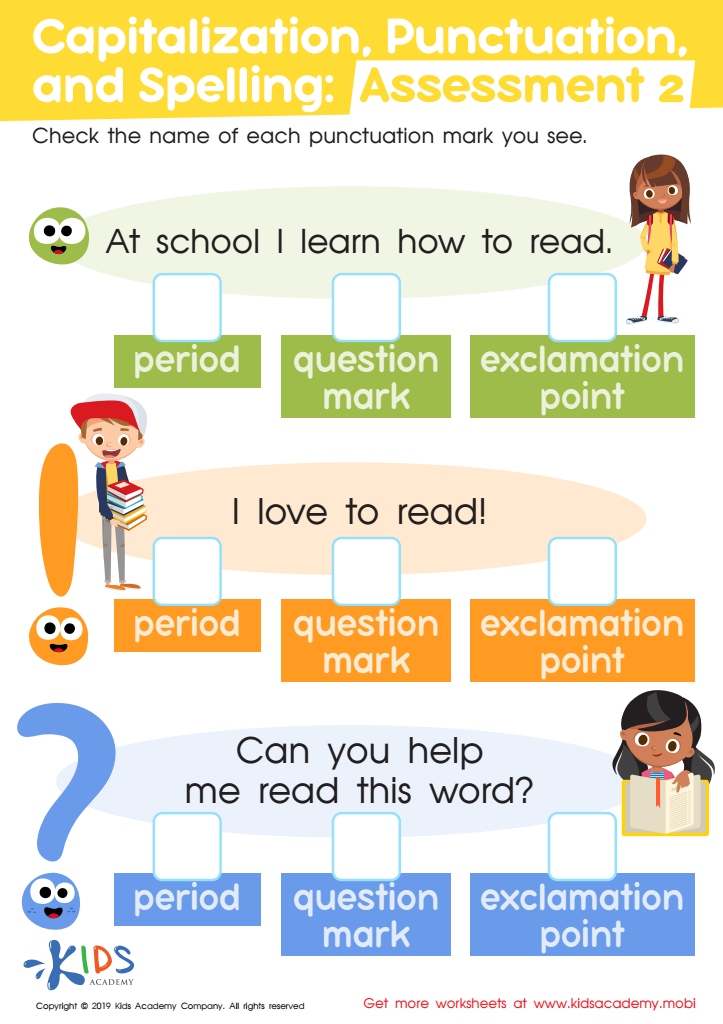

Capitalization. Punctuation. Spelling: Assessment 2 Worksheet
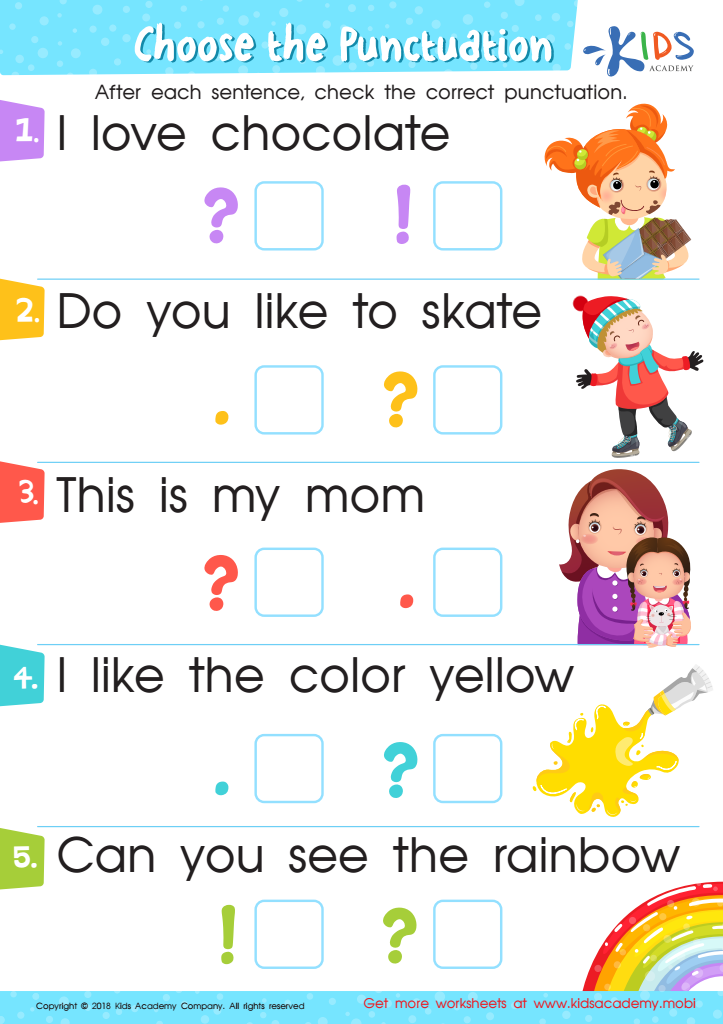

Choose the Punctuation: Assessment Worksheet
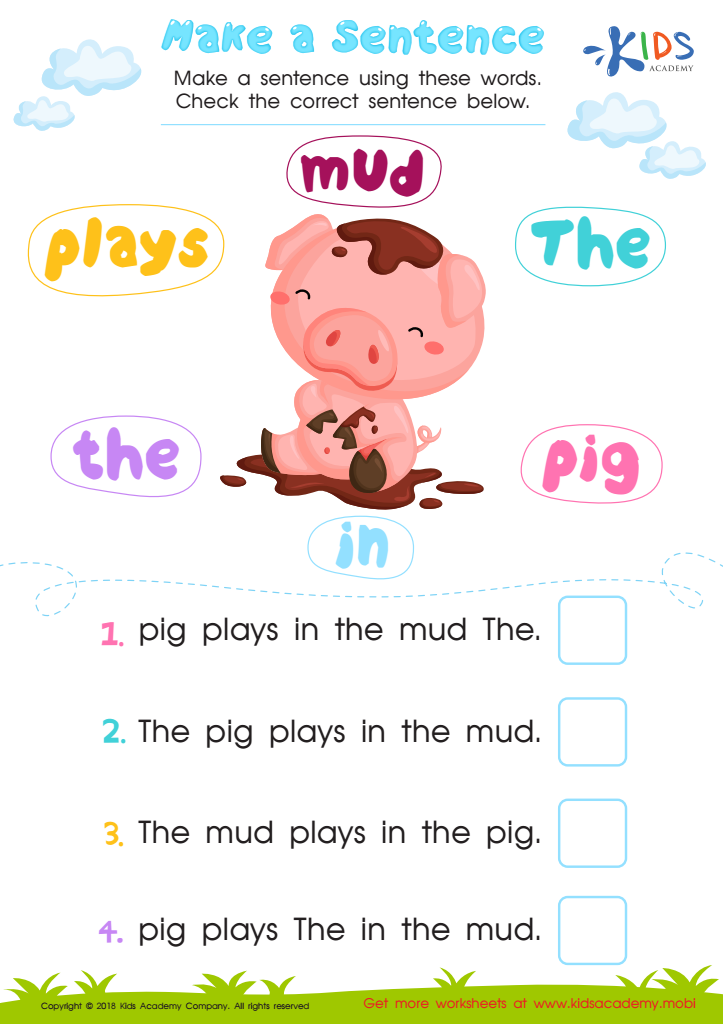

Assessment: Make a Sentence Worksheet
Writing activities for children aged 5-9 are crucial for several reasons. Firstly, this age group is experiencing significant brain development, where foundational literacy skills are being formed. Engaging in writing enhances vocabulary acquisition and comprehension, essential for effective communication. Parents and teachers who prioritize writing activities help children express thoughts and emotions clearly, fostering both mental and emotional growth.
Furthermore, writing cultivates creativity and imagination. Through different activities, such as storytelling, journaling, and guided prompts, children learn to construct narratives and explore new ideas, which boosts their confidence and encourages a love for language. Writing also aids in the development of fine motor skills, important for overall dexterity—the physical act of writing helps strengthen hand-eye coordination.
Additionally, writing activities promote critical thinking. When children organize their thoughts for writing, they learn to analyze information and develop logic—skills that will benefit them academically and socially throughout their lives. Overall, by supporting writing initiatives, parents and teachers contribute to a child’s holistic development, helping to lay the groundwork for not just academic success, but also for positive self-expression, problem-solving abilities, and lifelong learning.
 Assign to My Students
Assign to My Students
















